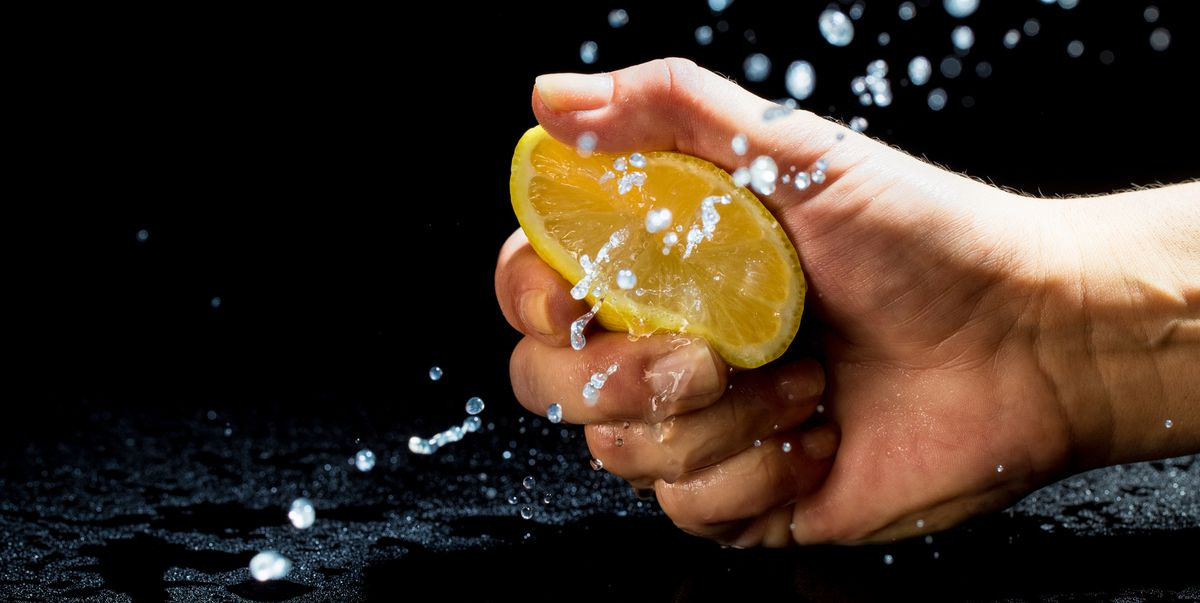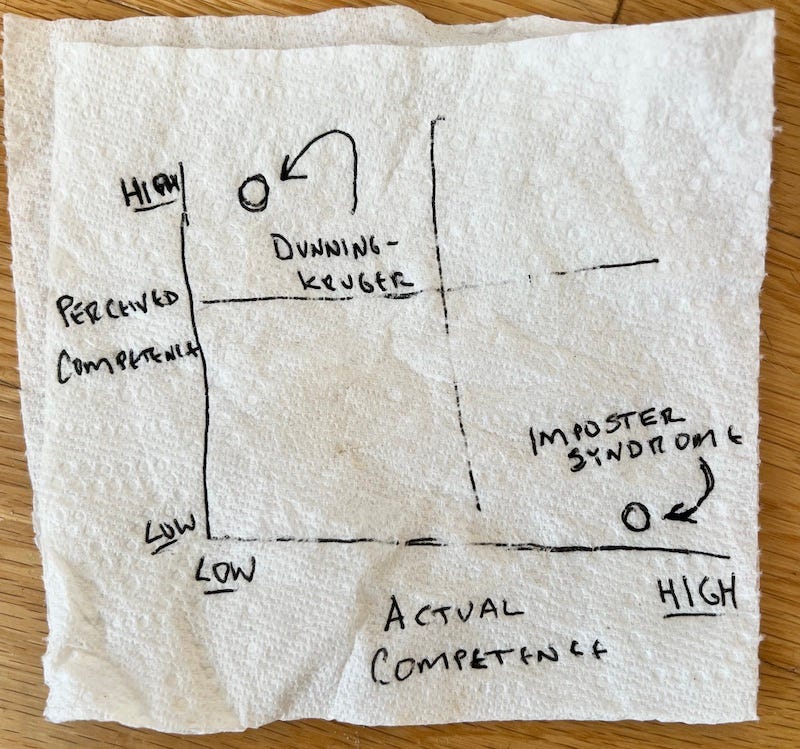224. The Measure of Incompetence
If you think you're the smartest person in the room, you're in big trouble
Shout out to Instacart
Unlimited Free Grocery Delivery on Orders $35+
Life is too short to stand in the grocery line.
I love me the Instacart. My groceries are (usually) delivered in one hour and delivery is free. Who doesn’t love free?!
Start your 2-week free Instacart trial now
(Editor’s Note: Please click the link, check out the deal, and support our awesome sponsor.)
In 1994, Clifton Johnson heard a rumor that if you wipe lemon juice on your face, your face would be invisible to cameras.
He told his friend McArthur Wheeler about this. Not surprisingly, Mac was a bit skeptical. So he decided to test it out.
McArthur covered his face in lemon juice, and then took a photo of himself with his Polaroid camera.
Lo and behold, McArthur’s lemon-covered face didn’t show up in the photo.*
Pretty excited about this revelation, the boys decided to use it to their benefit.
On January 6, 1995, the lads covered their faces in lemon juice, grabbed their handguns, and proceeded to rob two banks.
Keep in mind, they didn’t wear masks or any other disguises - they just smeared lemon juice on their faces so that they would remain invisible to the security cameras.
Or so they thought.
I think we all can agree, without having to test out the theory, that this is completely absurd.
Fast forward a couple of days later and the chaps were clearly identified from the security footage. It couldn’t be more clear.
It didn’t take long for the police to apprehend these criminal masterminds, after which they were sentenced to nearly 25 years in prison (which equates to one year for every $200 they stole - yup, their lemon face shenanigans netted them a whopping $5200).
A few years later, a college professor read the story about these lemonheads and made a discovery that impacts you and the people with whom you work.
The Measure of Incompetence
David Dunning was a professor of social psychology at Cornell University in the mid-1990s. Upon reading about the lemon juice boys, he began to think about the limits of stupidity.
More specifically, he wondered if one’s stupidity protects them from an awareness of their own stupidity.
He recruited his graduate student, Justin Kruger, and they set off to research whether or not a person’s perceived competence can be measured against their actual competence.
Their results became known as the Dunning-Kruger Effect.
The Dunning-Kruger Effect
The Dunning-Kruger Effect proved how people with little ability or lack of experience with a task tend to overestimate their ability or level of knowledge.
In other words, the people who are actually the worst at a job are the ones who think they are the best.
This theory has been studied and proven to hold true in a variety of different industries for a variety of different skill sets: from business to medicine, politics to driving. Even, dare I say, aviation.
Yes, the airplane pilots with the least ability are more likely to consider themselves amongst the best pilots in terms of competence.
I know, I wish I never considered that too. But there it is. It’s reality.
—
Why do people with limited abilities perceive themselves as having much greater abilities?
Well, one theory is that poor performers simply can’t tell the difference between good and bad performances. That is definitely one explanation for why we see people who are poor performers working in careers and at levels where they are completely incompetent.
And this brings us to you and your colleagues.
The Smartest Person In The Room
Because somebody talks a big game and seems to be highly proficient doesn’t mean they actually are. In fact, just the opposite.
Back in school, we learned from Isaac Newton that every action has an equal and opposite reaction. This applies to idiocy as well.
There is an opposite to the Dunning-Kruger Effect. It’s called Imposter Syndrome. And many of us have suffered from it.
Let me draw you a chart to make this more clear.
Here you go:
The person with low actual competence but high perceived competence is the danger we get from the Dunning-Kruger Effect.
On the other hand, somebody with a high actual competence but low perceived competence is a person who feels like an Imposter.
Odds are, the actual smartest person in the room doesn’t realize they are. Whereas the person who believes they are the smartest in the room is probably the idiot.
The bottom line is that you never want to be the smartest in the room. That’s not where growth happens. If you are the smartest in the room, or if you’re following somebody who claims to be the smartest, you’re probably in the wrong room.
If you follow the wrong people, you may just end up standing there with lemon juice on your face.
—
*btw, we don’t know what happened with the Polaroid but it was either faulty film or a very poorly staged selfie
A Somewhat Relevant Quote
“The greatest enemy of knowledge is not ignorance, it is the illusion of knowledge.”
Stephen Hawking - my #1 favorite physicist ever
Random News
Fruitgate – The sweetest cartel has been thwarted
Lost in Wine – Stranded woman forced to party to survive
Sorry Adolf – It’s amazing that the Indians and Redskins were first
Myster-iti-ous – The case of the mysteriously appearing pasta







